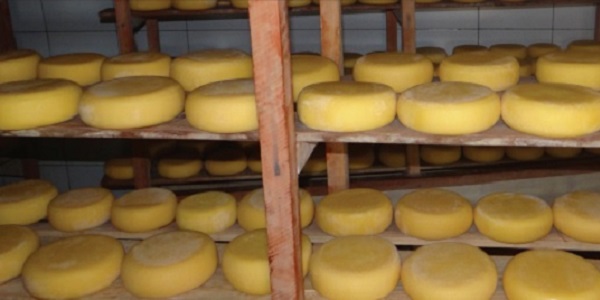
Munyankindi lone journey to creating a Rwandan cheese
Kampala, Uganda | ELIAS HAKIZIMANA | Theoneste Munyankindi, a priest Musanze District of Rwanda’s Northern Province, has unusual approach to business as his thriving cheese venture shows.
It all started with a dream that Munyankindi had – to produce a locally made Rwandan cheese.
For that, he realised he had to build a factory. But first he also had to produce the milk. He could easily have bought the milk from other farmers but Munyankindi has one unusual trait; he is a stickler for quality. That meant he could not easily trust other farmers to give him the quality milk he needed.
That is why in 2010, he started raising dairy cattle. The short shelf life of milk and milk products he produced on his diary farm made his dream of making cheese even more urgent.
He had laid the foundation for the enterprise but spent another five years refining the idea. It is only in 2015 that he started construction works on his milk processing factory, Fromagérie la Lumière.
Today, Munyankindi is what is called a model farmer; one who practices his farming by following very strict guidelines. He supplies cheese to top supermarkets and hotels in Kigali, Musanze, and Gisenyi.
Though he had planned to initially use milk from his 10 dairy cows, production was low. So he soon started training neighbouring farmers to produce the quality of milk he wanted. He trained them in better animal husbandry practices to increase milk production and quality. When he felt they had attained his grade, he started buying some milk from them.
He says although the decision to buy milk from other farmers in the locality to ensure sustainable production, it was also his desire to lead by example supporting other residents to improve their enterprises and livelihoods.
His project was driven by seeing how Rwanda’s economy is based on agriculture and livestock, and yet most of the produce goes to waste because of lack of processing avenues.
“I wanted to contribute to the development of the sector by helping increase the shelf life of milk products through value addition,” he says, “It would also benefit other farmers.”
His factory processes 1,000 litres per day and about 5,000 litres per week. The factory spends over Rwf1 million on payments for milk suppliers every week and buys Rwf200,000 worth of milk daily. It produces 100 kilos of cheese every day.
As ever, Munyankindi remains determined to improve quality of his cheese. He wanted to have the cheese certified with standardisation mark (S-Mark) by Rwanda Standards Board (RSB) the standards watchdog. That proved to be difficult in a country without a history of producing cheese. But Munyankindi says since he believes that to boost the marketability of the cheese and create confidence among the public, he needed quality certification, his company approached RSB and guided the regulator on how to implement safety standards.
The 42-year-old priest believes that certification adds value to products, which motivates him to improve the business on daily basis.
Munyankindi says acquiring the quality has made the cheese more competitive, adding that the price has risen from Rwf2,500 to between Rwf3,000 and Rwf3,500 after receiving the S-mark three years ago.
“The S-mark guarantees its quality, indicating that our cheese meets the required standards and is safe,” he says.
Though their market share has grown, the entrepreneur says they currently serve 30% of the targeted market.
Therefore, they are looking to reach more people and use different channels to deepen our market reach.
“This way, more farmers will gain from an expanded market and earn better from their farming activities,” he adds.
In the meantime, the factory is also working hard to get what is called the Hazards Analysis and Critical Control Point (HACCP) certification. This will ensure that their products can be trusted and marketed regionally and internationally.
The cheese maker is confident to make it on the big stage in regional and global markets as the firm plans export the cheese after getting HACCP certification.
Fromagérie la Lumière has also benefited from government support to the dairy sector; such as capacity building and trainings of its employees, as well acquisition of better equipment and processing facilities. Munyankindi says his dream is far from fulfilled. He wants to produce between 200 and 300kg of cheese every day going forward. The factory plans to increase the production five times in three years.
 The Independent Uganda: You get the Truth we Pay the Price
The Independent Uganda: You get the Truth we Pay the Price



